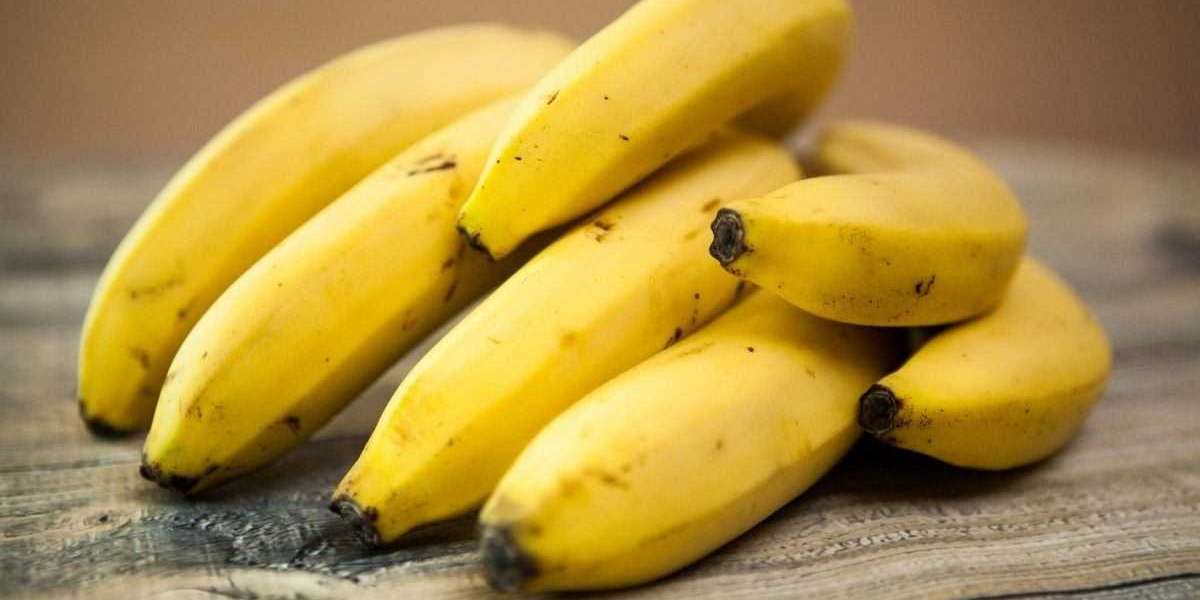Bananas are one the most famous fruits. There are many varieties, but you will be most familiar with the Cavendish variety. They age from green to yellow and have a sweet flavor.
Bananas are rich in potassium and carbs. Cenforce 100 helps men’s health.
Bananas are also a good source of fiber, L-ascorbic acid, and a variety of cancer prevention and phytonutrients.
This is what one banana can do:
- Calories: 113
- Potassium: 375 milligrams (mg)
- L-ascorbic Acid: 14.1 mg
- Vitamin B6: 0.24 mg
- Calcium: 5.75 mg
- Fiber: 5.31g (g).
- Magnesium: 32.2mg
- Protein: 0.85 g
- Fat: 0.33g
- Carbohydrates: 26.4 g
- Manganese: 0.3 mg
Medical Benefits of Bananas
Maybe we should change the phrase to "a banana daily keeps the specialist away."
1. Bananas could help you increase your energy levels
Is it possible to mix your favorite sports drink with a banana? Perhaps. A 2012 study found that bananas were just as beneficial as sports drinks in terms of further developing energy. Bananas are also more beneficial than sports drinks in terms of further developing energy.
Bananas also contain less sugar than the average game drink. Bananas could be used to support fertility in males and females by reducing oxidative stress, increasing sperm quality, and balancing hormones.
2. This could help with your stomach-related well-being
Bananas can also help with your midsection. Safe starch is a type of fiber found in unripe bananas. Safe starches can pass through your stomach without being processed.
They are then absorbed into your internal organ, where they can support beneficial microorganisms.
The ability to reduce gastrointestinal swelling may also be attributed to bananas. One 2011 study looked at women who consumed a banana every day, despite their normal eating habits.
3. May Advance Heart Wellbeing
Bananas are high in potassium, which can lead to better heart health. Research suggests that a diet high in potassium may be associated with a lower risk of stroke and cardiovascular disease.
Bananas also contain high levels of magnesium and catechin. Vidalista 20 can help you savor a healthy life for a long time. Catechin, a flavonoid used to prevent cancer, has been linked to a lower risk of developing coronary disease.
Recent research has shown that magnesium is important for maintaining healthy heart function.
4. Support Bone Wellbeing
Bananas contain a prebiotic called fructooligosaccharides (say that multiple times quick). This prebiotic was reviewed in 2003 by a more experienced reviewer.
It was found that the prebiotic increases your body's ability to retain calcium as it ages in your gastrointestinal system.
Recent research has shown that eating more soil products (counting bananas), can have an impact on bone health in older and moderately-aged people.
It was found that eating natural products has a greater risk of developing osteoporosis.
A 2017 study also found a correlation between having enough potassium and higher bone thickness. This could be due to your body's higher calcium intake.
5. Contain nutrients that might help with PMS relief
If you have difficulty with premenstrual syndrome (also known as PMS), then you might consider adding bananas to the diet. Why? This organic product is an excellent source of vitamin B6.
This nutrient might be able to reduce PMS symptoms if it is taken with magnesium. Keep in mind that bananas also contain magnesium.
6. May help with weight loss
Bananas are not a good way to lose weight. If you are trying to lose weight, eating bananas is still a good dietary choice.
Bananas have low calories but a good amount of fiber. They are nutritious and can help you feel full.
Research has shown that more fiber from the soil can lead to weight loss and lower body fat.
Bananas can likewise contain gelatin. Research has shown that gelatin can limit the amount of fat your cells can absorb. However, the higher the banana's ripeness, the lower its gelatin content.
7. Contiennent Supplements that Can Help Control Glucose Levels
Unripe bananas are rich in gelatin and safe starch. These two ingredients are crucial in directing glucose levels. An older study found that unripe bananas have more starch than prepared bananas.
Because the body cannot separate starches as efficiently, glucose expands slowly when you eat less-ready bananas.
Research has also shown that dietary fiber may help lower glucose spikes, and increase glucose levels. This is another time bananas' fiber content can be a boon.
Bananas also have a good glycemic rating. The glycemic index (GI) measures how quickly food sources increase glucose levels. It ranges from 0 to 100. Bananas can be placed low to medium so that they don't cause large glucose spikes in grown-ups.
8. Contain Intensifies that May Help With Sore Muscles
If you are a regular exerciser and feel the discomfort of sore, throbbing muscles, then you might consider adding bananas into your diet.
Bananas can be a good source of magnesium. Research has also shown that magnesium can reduce muscle touchiness.
9. Contain Intensifies May Help With Cholesterol Reduction
Bananas may be able to lower your cholesterol if you have high blood pressure. The organic product is rich in phytosterols, a compound that helps lower cholesterol levels. One review indicated that these could help lower your "terrible LDL cholesterol."
All of the fiber found in bananas is also important. According to a 2017 audit, people who eat more fiber have a lower risk of developing cardiovascular disease and lower levels of LDL cholesterol.








